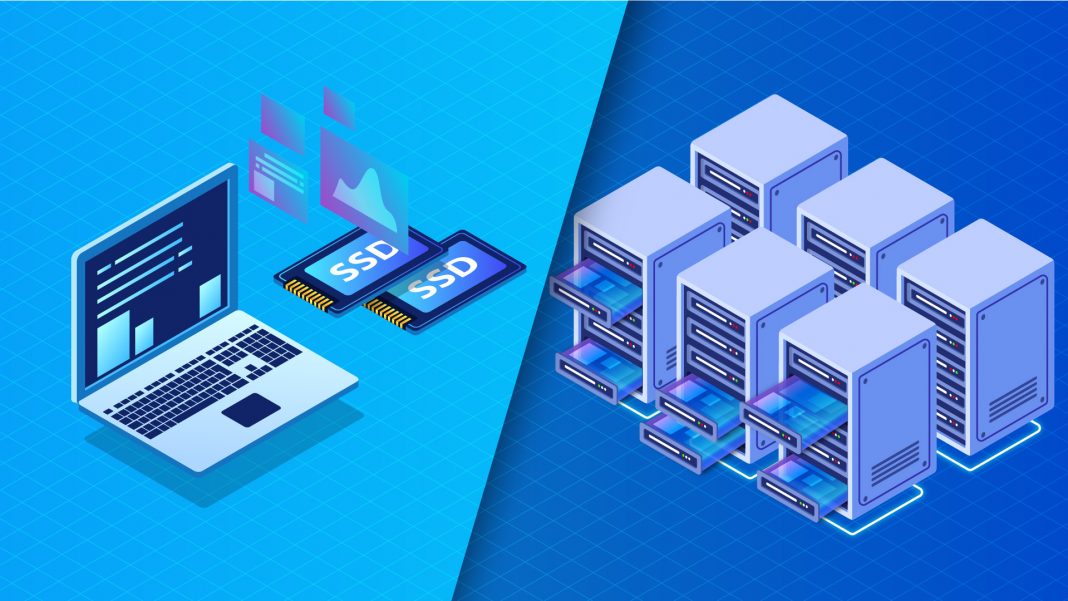Nowadays, a business without essential technological solutions cannot exist in the long run. Every day the world undergoes numerous changes, which requires fast data storage and recovery. This is why where all technologies are mandatory to stay competent in the business world, an organization without optimal storage methods can face downfall.
Remember, your business demands the newest technology, especially when it comes to storing your precious data. And as there are the latest solutions to make things easy, it’s hard to choose the right SSD to ensure high-level data protection and restoration.
What is SSD?
Gone are the days when traditional mechanical hard drives where meant to store the data. Undoubtedly, they have served businesses well, but using them in this modern era is like putting your firm at risk. Why? Because they are slow, they can crash anytime, and for the worse, they have inconvenient data transfer. But thanks to the Solid State Drive (SSD) for saving all the small and big organizations by disaster-proofing their significant business data.
An SSD is a new way of storing data that doesn’t include moving parts, such as a read/write head present in the old storing technology (HDD). Solid State Drives work differently, as they use NAND flash memory chips, which makes them durable, efficient, faster, reliable, and easy on data transferring.
However, the confusion rises when it comes to choosing the right SSD. Most businesses are unsure about having a ‘Data Center Class SSD’ or ‘Consumer Class SSD’.
What is Data Center Class SSD?
A Data Center Class SSD is an advanced storage device or servers that keep data persistently, as well as, stores cache data temporarily in non-volatile memory (NVM). It means that there is no need for a continuous power supply to restore and retain the information.
Data Center Class SSDs are prominent among businesses, especially those who do not wish to compromise on data protection. Moreover, this SSD type is designed to read and write-heavy storage workloads for smooth operations 24/7.
What is Consumer Class SSD?
Consumer Class SSDs are widely used in desktops, mobile, and laptop devices. This SSD aims to preserve battery life. However, Consumer Class SSDs are not suitable for businesses, and they are unreliable when it comes to data transfer.
Furthermore, they can be hijacked, misplaced, or simply gets corrupt at any time. This is why most businesses do not prefer using these SSDs, as they are not solid as a storage device should be.
Data Center Class SSD vs. Consumer Class SSD – What’s Best for Business?
It is important to understand that both storage devices have their particular qualities. However, their perfect usage depends on the nature of work. Most business owners fail to understand the main differences between the Data Center Class SSDs and Consumer Class SSDs, and they regret their decision later. So to help you pick the best SSD for your business, below are some key features of both SSDs.
1. Work Capacity
Many businesses use critical applications and require writing heavy workloads daily, such as high-transaction environments and databases. For this, they need a heavy-duty storage device to bear the workload. They look for drives, which could read and write all the transactions without any drawbacks.
So to fulfill such needs, a Data Center Class SSD is highly recommended, as it is designed to handle both write and read activities. And as these drives are single-level cell or multi-level cell NAND-based, therefore, no matter how many times you upload or retain the data, the work is always up to the mark. Plus, this SSD reserves extra spare cells, which are used to prevent information from being lost in case of a chip failure or wear-out.
On the other hand, Consumer Class SSD has limits. They are triple-level cell or quad-level cell-based due to which the number of write cycles is low, as compared to Data Center Class SSD. In other words, you cannot store heavy files due to storage restrictions. Moreover, reading capability is not ideal for businesses.
2. End-to-End Data Protection
Data migration may look simple, but it is one of the most critical procedures, especially when the information is excessively vital. Certain issues can take place during data transference, such as noise interference, signal attenuation, etc.
However, to make sure nothing is lost during the transmission, End-to-End Data Protection (E2E Data Protection) is required to make sure that the retrieved or accessed data is accurate during the entire procedure.
So when it comes to having accurate and highly reliable data, then Data Center Class SSD is always the first choice for businesses. The E2E data protection in this SSD ensures data validity and correctness whenever it becomes necessary. And this process continues at every single step – from data writing to data reading.
On the contrary, Consumer Class SSDs are unable to provide accuracy in data migration. This can cause a great loss to important clients or consumer information.
3. Endurance
Endurance is one of the most important things to look for in storage drives. To understand it most simply, it is the total data an SSD drive is claimed to write under a specific period or warranty.
Recently, there is a plethora of information about Consumer Class SSDs, and several experiments have proved that their endurance levels are beyond expectations. But the truth is that these experiments are made from individuals’ perspectives and not from a business point of view.
For example, Consumer Class SSDs are tested on individual clients’ workload, rather than tested with worst-scenarios data center workloads. This is why Consumer Class SSDs fail to prove their mettle under highly-sophisticated business environments.
A similar experiment was made by Intel to compare the endurance of both SSDs. And, as expected, the results were in favor of the Data Center SSDs. Therefore, businesses must go for the Data Centers for maximum endurance.
4. Performance
Consumer Class SSDs are designed to help single or limited (few) users, who look forward to handling a limited amount of data for personal use. This means you can expect this SSD to work magnificently when it comes to storing movies, songs, small university projects, or a few worksheets.
On the contrary, Data Center Class SSDs are engineered to process millions of data bytes, which can be concurrently assessed by numerous clients, as well as, staff members. So no wonder why organizations prefer Data Center SSDs, as they offer great throughput and high performance, which is absent in Consumer Class SSDs.
5. Firmware and Hardware Support
A business that is running on an outdated or basic firmware is incapable of achieving its long-term goals. The reason is simple, as it doesn’t meet or go along with the technological needs and revolutions, which occur over time.
In SSD drives, the firmware is a program installed on a device. It offers essential instructions for how a drive must communicate with other computers or systems when it’s about writing or retrieving the data. Also, the hardware only supports consumer class computers and doesn’t encourage other platforms.
Data Center Class SSD has an intelligent, smarter, and advanced firmware, which offers improved error-checking and wear-leveling. Moreover, these drives are highly-efficient when dealing with failed blocks due to greater space overhead capacity. Similarly, the hardware is guaranteed to work on multiple platforms without causing any trouble.
These features are found to be missing in Consumer Class SSDs, as they are comprised of fundamental firmware only, which is, most of the time, not updatable.
6. Temperature Support
Temperature plays an indispensible role in the operations of SSD drives. It is observed that Consumer Class SSDs are created to bear 0°C to 70°C temperature, whereas, Data Center Class SSDs are can withstand temperatures from -40°C up to 85°C. This enables Data Centers to offer smooth functioning even in extremely hot or cold climates or environments.
7. Authenticity and Replacement
When a digital storage device loses power, the unwritten data is lost. It is the critical metadata, the device fails to restore after obtaining the power again. Nevertheless, the good thing is that Data Center Class SSD includes circuitry to preserve a charge on the drive unless the data is not safely written on it.
Unfortunately, Consumer Class SSD lacks this function, which causes server downtime, and drive failures. This is one of the biggest reasons why businesses choose Data Center Class SSDs.
8. Latency
Latency is also called the response time. More specifically, it tells how quickly or slowly an instruction is sent and executed. And it is another important factor that makes Data Center Class SSDs better than Consumer Class SSDs, as they have low latency. Therefore, they empower your business with maximum productivity and stable performance.
9. Price
Last but not least, Consumer Class SSDs are comparatively cheaper than Data Center Class SSDs. But with great price comes great features. So if you are willing to go for economical storage, then it’s like endangering your entire business, whereas, Data Center Class SSDs, despite being a bit expensive, can assure maximum data protection, transference, and low response time. And if you opt for Data Center solutions from Net Onboard, you choose to connect with 10 major upstreams, 365 days support, and multiple pricing plans without any hidden cost.
Whether you own a small business or a big multi-national company, if you are relying on old technologies to secure, read, and write the data, then you can lose everything within no time. Noticed or unnoticed, but your competitors have already chosen SSDs to make flawless business operations. So if you’re planning to have a Solid-State Drive, but stuck on adopting a Data Center Class SSD or Consumer Class SSD, then it’s always better to go for the first option because of the extraordinary features. Furthermore, you can always trust the Net Onboard for Data Center Class SSD, as we offer top notch server co-location solutions in Malaysia.























